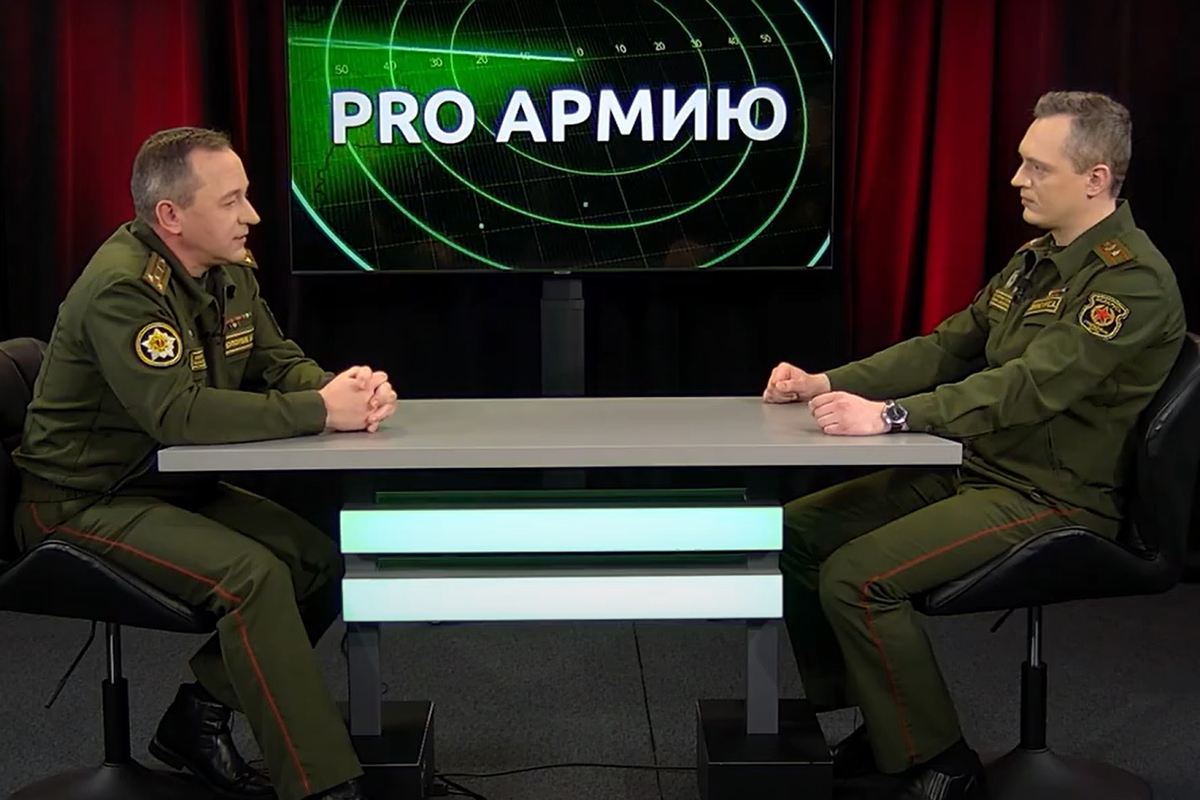General Staff of Belarus’ Armed Forces named main innovations of draft updated Military Doctrine
Colonel Vladimir Apolonik, from the Information and Analytical Department of the General Staff of Belarus’ Armed Forces, shed light on the main innovations envisaged in the draft Military Doctrine, drawing a particular attention to the strengthening of the document’s connection with the updated National Security Concept
 Photo: video screenshot
Photo: video screenshot
As noted by Mr. Apolonik in his talk with the SB TV YouTube channel, the sources of threats to military security have been specified in the document. “In addition to the trends that are taking place in the world, we have tried to reveal how these trends will affect military security. A separate article – Trends in Military-Political Situation – identifies not only trends directly, but also sources of threats to national security that can cause some definite harm to the national interests of the Republic of Belarus through the use of military force or means of armed struggle. Based on the National Security Concept provisions that outline the sources of threats to national security, the Military Doctrine explains military dangers at various levels. In my opinion, a very important innovation of the Military Doctrine is that these military dangers are revealed at various levels: risk, challenge, military threat, and immediate threat of aggression. This has been done so that the leadership of our state would be given the opportunity to make decisions on the measures that are necessary to counter military danger at various levels,” he explained.
“The Military Doctrine sets out a number of measures that must be taken to counteract military danger, and I would like to emphasise that – in line with the current doctrine – we are aimed at directly countering threats to Belarus’ military security. In contrast, the draft document sets out measures that need to be taken at various levels of military danger,” the military official continued. “In this way, we are trying to prevent the outbreak of an armed conflict and the transition of dangers from one level to another. I think this is an important innovation of the project that we have developed.”
Colonel Apolonik added, “In addition, the classification of military conflicts has been changed. As before, we consider military conflicts as internal armed conflicts, international armed conflict, and wars. Meanwhile, the latter are now being considered in a slightly different way. Previously, wars were classified by scale: local, regional and large-scale. However, in our opinion, such a classification is somewhat inconvenient for the Republic of Belarus. After all, it is clear that any war our country may be involved in will cover all its territory, and it will be necessary to use all resources of the country. Therefore, we tried to classify military conflicts based on the involvement of the forces that will participate in a military conflict. The new approach – envisaged by the Military Doctrine – is that we either wage war on our own or, accordingly, in a coalition with allied states. We understand – and many may say – that no war, conditionally, against the collective West can be won without external help, especially by a state like Belarus, with the human and material resources available. At the same time, you must agree that if society is not ready to defend its state on its own, a question will emerge on who will stand up for it. In this case, it is emphasised that the Republic of Belarus, if necessary, will defend its national interests independently as well. As for the so-called coalition war, it is stated here that we will use not only our Armed Forces, but also the coalition forces of friendly states.”
By the way, the notion of ‘war’ is not as unambiguous today as it was many years ago, since indirect influence and information attacks are common now. Moreover, Western countries are actively resorting to such a tool as sanctions. Commenting on whether a response to such threats is envisaged by the draft Military Doctrine, the expert explained, “This is a military doctrine anyway, and consider the use of military force or means of armed struggle within its framework. Meanwhile, economic sanctions and informational attacks are a broader concept. True, we are considering these issues within the framework of our Military Doctrine, but it is probably not worth saying that a proxy war is a kind of military conflict.”



